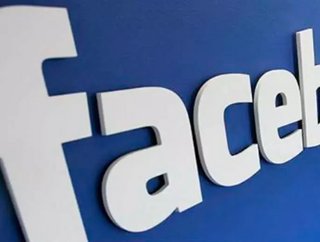New psychological scale measures Facebook addiction

Are you addicted to Facebook? Does your heart race every time you seen a new notification or friend request appear on your news feed?
Well, thanks to a group of researchers in Norway, people can now measure the severity of their Facebook addiction using a psychological scale.
It is thought to be the first time psychologists have formally recognised social media dependency as a real addiction, and the scale is the first of its kind in world.
To read the latest edition of Healthcare Global, click here
- Household chemicals cause cancer and infertility - EEA
- Coil beats morning after pill after unprotected sex
- Treatable infections cause one in six cases of cancer
Known as the Bergen Facebook Addiction Scale (BFAS), it consists of six statements which users respond to by grading their social network dependency.
The statements are:
- You spend a lot of time thinking about Facebook or planning how to use it
- You feel an urge to use Facebook more and more
- You use Facebook in order to forget about personal problems
- You have tried to cut down on the use of Facebook without success
- You become restless or troubled if you are prohibited from using Facebook
- You use Facebook so much that it has had a negative impact on your job/studies
And the responses are as follows: (1) Very rarely, (2) Rarely, (3) Sometimes, (4) Often, and (5) Very often.
The theory is if you score four or five on at least four of the statements, you are addicted to Facebook.
After coming up with the scale, the researchers from the University of Bergen carried out a study to test its effectiveness.
They recruited 227 female and 196 male students to take part in the investigation, 423 in total.
Commenting on the findings, Cecilie Schou Andreassen, the leader of the research, said: “The use of Facebook has increased rapidly.
“We are dealing with a subdivision of Internet addiction connected to social media.
“It [addiction] occurs more regularly among younger than older users.
“We have also found that people who are anxious and socially insecure use Facebook more than those with lower scores on those traits, probably because those who are anxious find it easier to communicate via social media than face-to-face.”
She added: “Women are more at risk of developing Facebook addiction, probably due to the social nature of Facebook.”
The findings have now been published in the Psychological Reports journal.
The Healthcare Global magazine is now available on the iPad. Click here to download it.
- Opioid trial finds Teva Pharmaceuticals liableMedical Devices & Pharma
- Facebook partners with NYU School of Medicine to revolutionise the MRI processTechnology & AI
- Jeremy Hunt takes on social media titans to reduce impacts on mental healthDigital Healthcare
- Facebook halts plans to data share with health facilitiesDigital Healthcare






